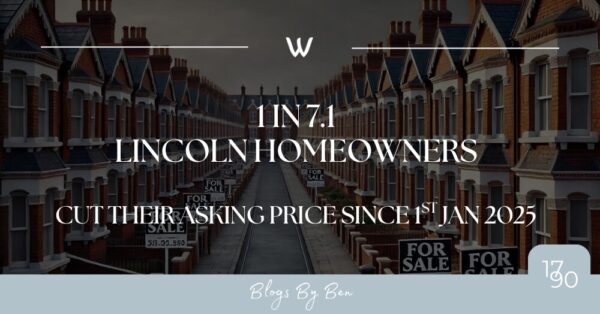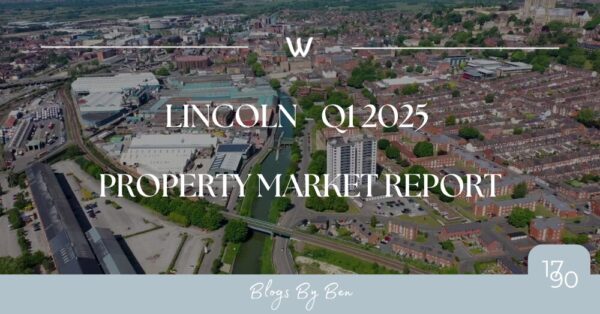The consensus among economists and the wider public is clear: the remarkable ascent of Lincoln’s property prices over the previous twelve years has reached its peak and is now starting to drift downwards.
Major national publications splash headlines filled with pessimism about the UK housing market, citing issues such as buyer affordability caused by challenges with average salary growth not keeping up with inflation, higher interest rates also hitting buyer affordability, and the hangover of the pandemic making recruiting people challenging work. However, these gloomy projections don’t seem to resonate with the fact that Lincoln’s property market activity in the past year closely mirrors that of 2017/18/19.
This divergence might hint at the age-old notion: ‘bad news sells newspapers’.
To provide a clearer picture, let’s delve deeper into Lincoln’s property market nuances, focusing on the demographics of movers and their motivations.
During the past year most of the property sales in Lincoln during the last year were terraced properties, selling for an average price of £173,450. Semi-detached properties sold for an average of £210,780, with detached properties fetching £307,270.
A closer look at Lincoln’s homeowner sector in the last 12 months of housing data reveals the following…
- 1,609 Lincoln households moved within the same ownership sector, implying they sold their home to purchase another.
- 379 Lincoln households ended and exited home ownership (e., moved in with family, moved to a care home or sadly passed away).
- 406 Lincoln households shifted from owning to private renting.
- 36 Lincoln households moved from home ownership to social housing (e., Council Housing or Housing Association).
- 856 Lincoln households shifted from private renting to homeownership.
- 869 new Lincoln homeowner households emerged, transitioning from residing with family or friends to buying their first property without experiencing the private rental sector.

Despite the relentless doom and gloom portrayed in the media about the property market, it’s heartening to witness a robust influx of Lincoln first-time buyers securing their own homes.
Remarkably, 869 of these newcomers have moved from family or friends into homeownership, showcasing the enduring spirit of people wanting to buy their home. Additionally, 856 households have transitioned from the private rented sector, demonstrating a genuine aspiration among tenants to achieve homeownership.
This trend underscores the resilience and adaptability of aspiring homeowners amidst challenging times.
But what does this data spell out for Lincoln’s buy-to-let landlords?
On the surface, with 856 households moving from private rentals to homeownership and 406 moving the other way, there seems to be a slight contraction in the private sector.
Yet, what I don’t mention is the number of new rental households. I do not have the Lincoln statistics for those yet, but we can look to the national statistics.
Whilst the number of British landlords, according to capital gains tax receipts, selling up has increased by around 45% in the last year compared to pre-pandemic levels, the number of landlords buying buy-to-let is only 19% down.
There are new rental properties being created, whilst at lower than previous years, it is still growing nationally by 177,000 households a year.
So where are the opportunities for Lincoln landlords?
A golden opportunity for Lincoln’s property investors lies in the 379 properties that went up for sale last year due to owners passing.
Often, these homes, maintained over several decades by older owners, feature high-capital improvements like double-glazing or central heating. However, they might lack contemporary aesthetics, having outdated decor or out-of-style fixtures from the 1980s.
Such properties often come at lower prices because many buyers overlook their potential due to dated appearances. A smart investment in renovations could lead to handsome profits on resale.
It’s imperative to put things in perspective. Regardless of global events – whether it’s post Brexit, post Pandemic, potential political shifts in the US or China, interest rates or stock market dynamics – Lincoln’s property market remains robust in the mid to long-term framework.
Even as we witness minor value corrections in the upcoming 12 to 18 months, history has shown that property prices bounce back, often with greater momentum.
This underscores the timeless advice to those venturing into the property market, be it first-time buyers, landlords, or homeowners: property is a marathon, not a sprint.
Commitment to the long haul invariably yields rewards, a philosophy that can be applied universally don’t you think?


